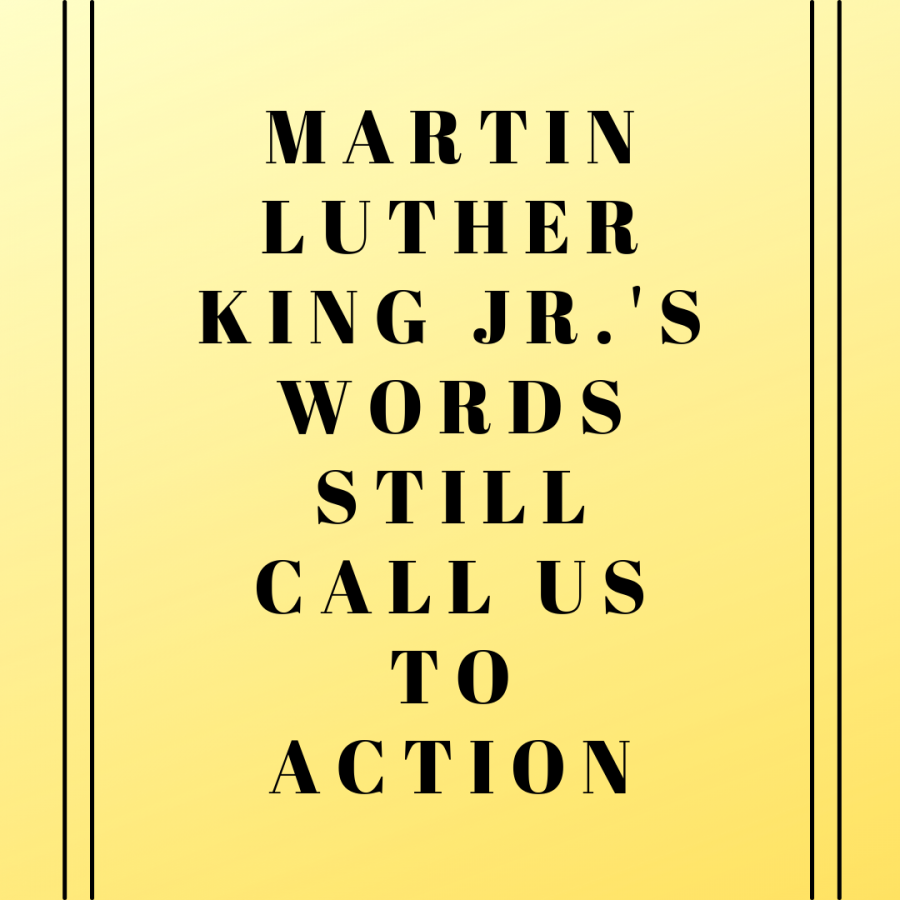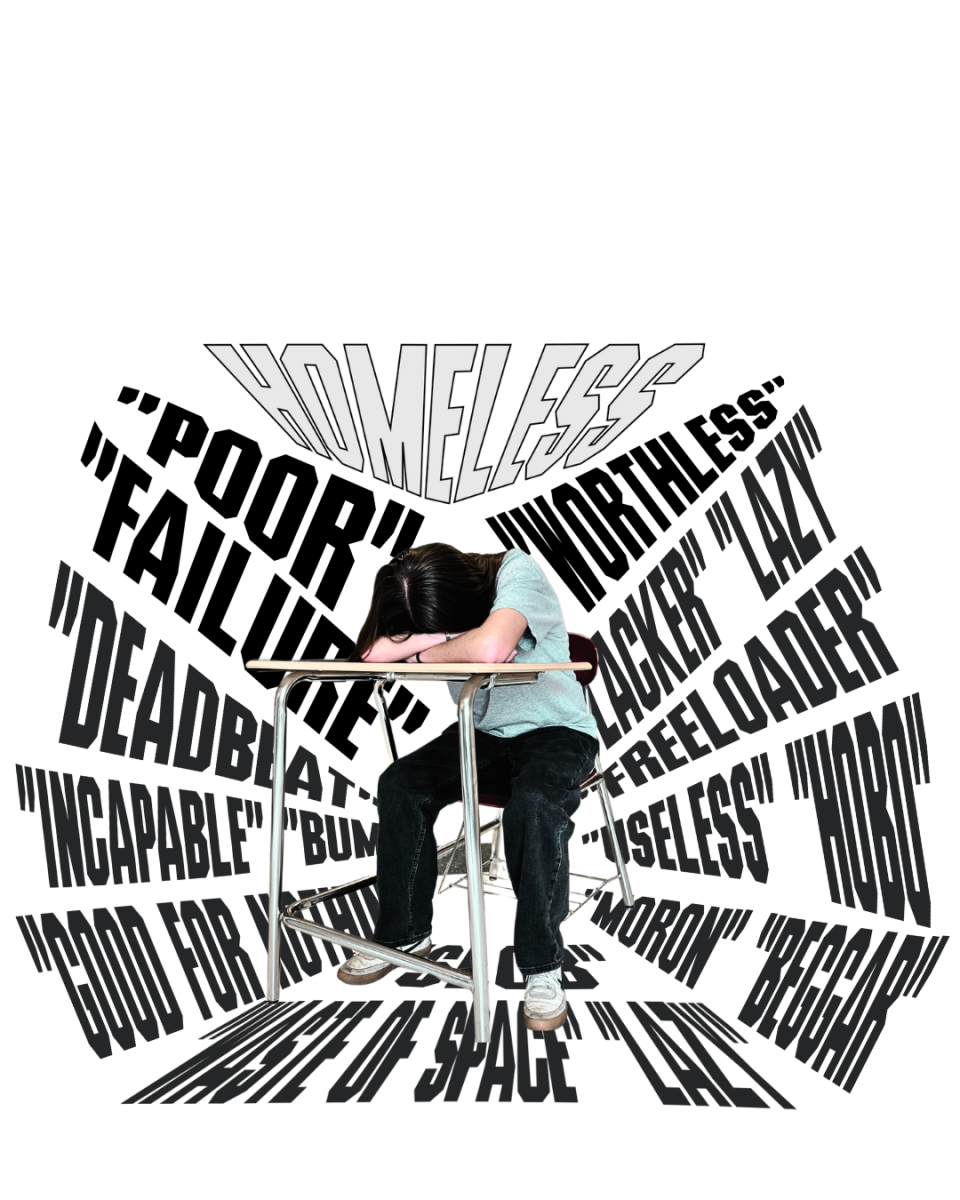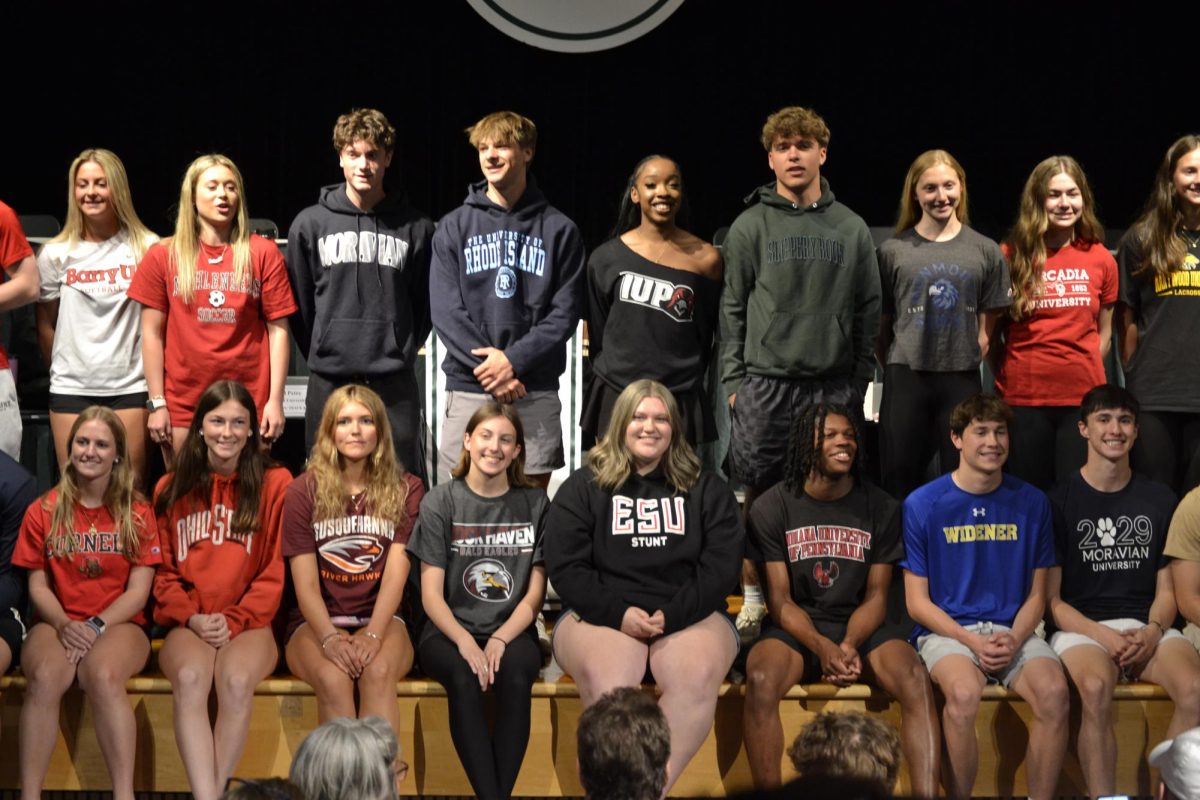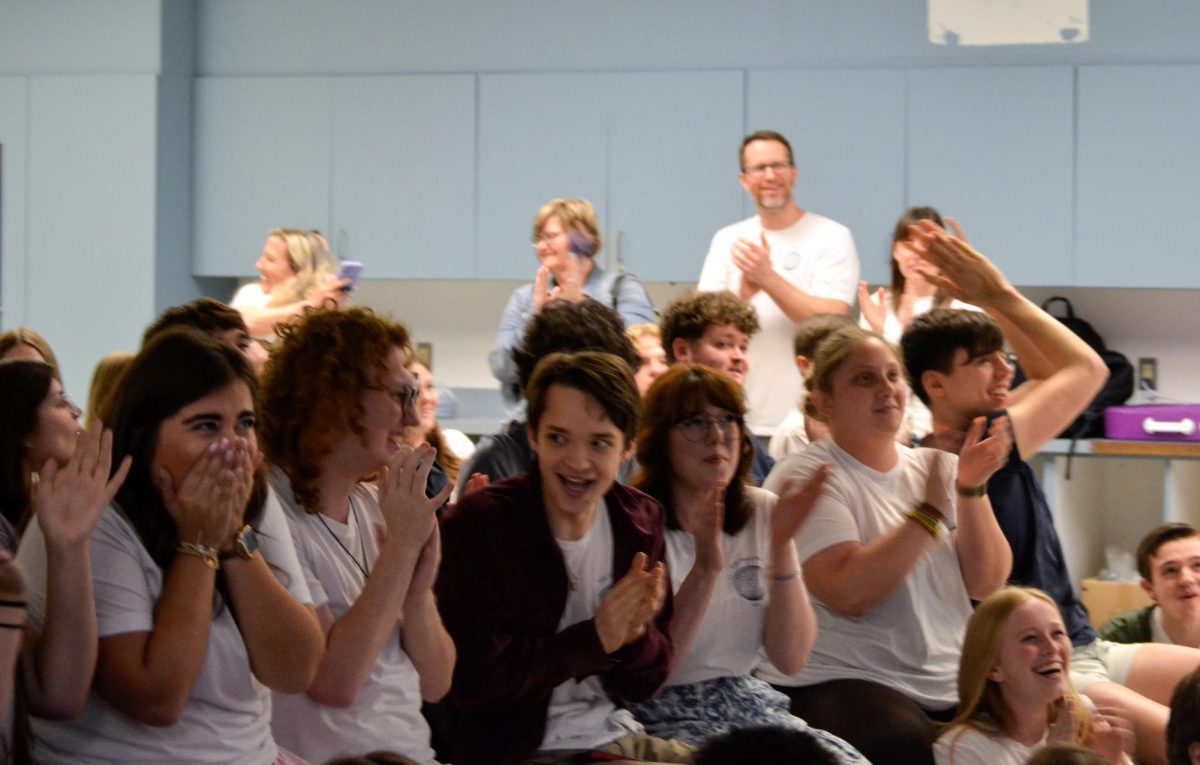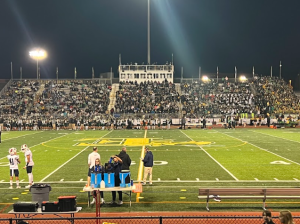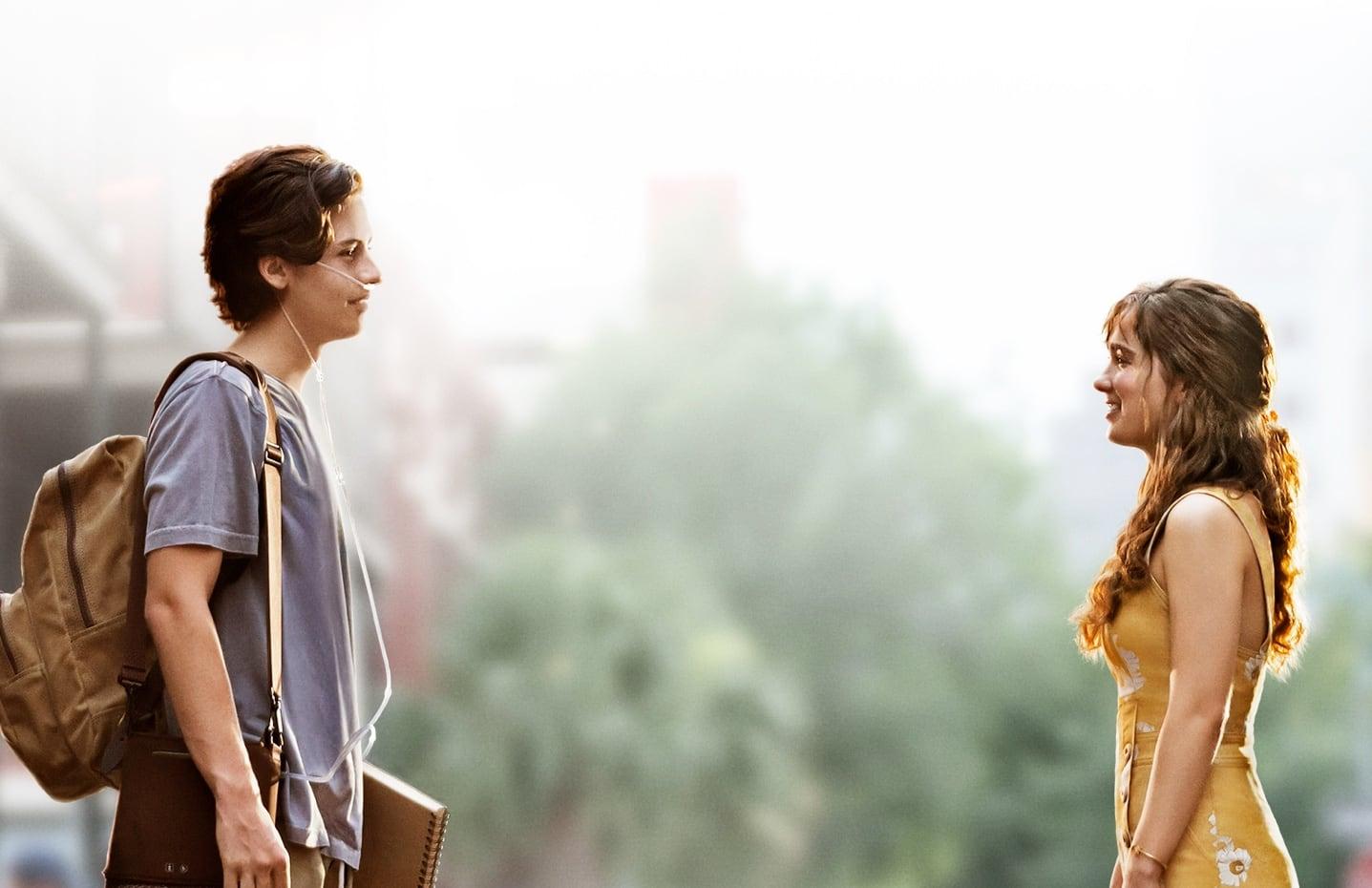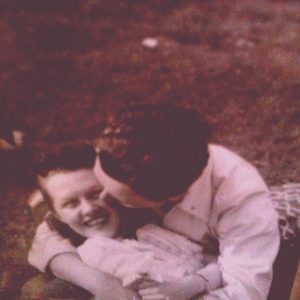Martin Luther King Jr.’s words still call us to action
January 18, 2021
Say their names: Breonna Taylor. George Floyd. Tamir Rice. Michael Brown. Jonathan Price. Rayshard Brooks. Elijah McClain.
These are just some of the victims who have died from police brutality in recent years. Whether police officers silenced them for giving a counterfeit bill, holding a toy gun, lying in bed at home, trying to stop a disturbance, or merely driving, these people suffered unfair accusations that led to their wrongful deaths.
Why? We know why.
35 years ago today, the United States celebrated the first federal nationwide Martin Luther King Jr. Day in 1986, although the legislation was adopted three years earlier. Several states refused to observe the holiday; one of the last, South Carolina, did not observe Martin Luther King Jr. Day until 2000 — and even then, the governor only approved it as long as a Confederate Memorial Day was also passed in the state.
As a 16-year-old African American male, I find myself educating others about how Black people face discrimination from others, including some who pretend that we’re not people. Every single day, Black people fear for their lives, knowing that anything can happen because of the color of their skin.
We never have been given the same equal opportunities as others. We’ve always come last. So, in 2013, The Black Lives Matter movement was started, representing justice, equality, and the end of police brutality toward Black people.
Black discrimination dates all the way back to the times of slavery and segregation. Research suggests that it continues.
According to Pew Research Center, most adults in the United States believe the “legacy of slavery” still impacts the position of Black people in America, even though the 13th Amendment abolished slavery more than 150 years ago. This 2019 survey shows that more than four in 10 adults believe our nation hasn’t made enough progress toward racial equality.
Skepticism remains, largely among African-Americans, that they will ever have equal rights, according to the survey.
As King once said, “Injustice anywhere is a threat to justice everywhere.”
We’re tired of being treated like animals, criminals, bad people. We’re tired of being called those racial slurs. Black people are people too.
We also matter.
We matter as much as whites, as Asians, as Latinos, as Latinas. As everyone.
There are days where I — as the proud son of parents from the Democratic Republic of Congo — feel uncomfortable just being somewhere as the only colored kid. At times, it has been so awkward.
Sometimes, you’re going someplace and a cop car comes out of nowhere; you just stand there. Even if nothing happens, a bunch of thoughts go through your head:
Are they going to approach me?
Am I being arrested?
Am I going to get shot?
Then you start to worry.
There have been countless counter-protests against Black Lives Matter, one of the most prominent being the All Lives Matter movement. The thing is, ALM portrays that Black lives just don’t need to matter. When people say that it’s not just Black lives that matter but that all lives have to matter, they don’t want to understand the true mission and purpose behind BLM. The All Lives Matter movement shows that some people choose to remain uneducated. They don’t know what it’s like to be in a Black person’s shoes and to experience racism, discrimination, and the slurs we endure.
While, yes, everyone’s life matters, All lives can’t matter until Black lives matter. If not, then nobody matters.
The only way to solve this issue is to come together as a nation and stop discrimination and hatred towards Black people. As Dr. King said: “Darkness cannot drive out darkness, only light can do that. Hate cannot drive out hate, only love can do that.”
Jonathan Eudja is a junior at Emmaus High School. 


